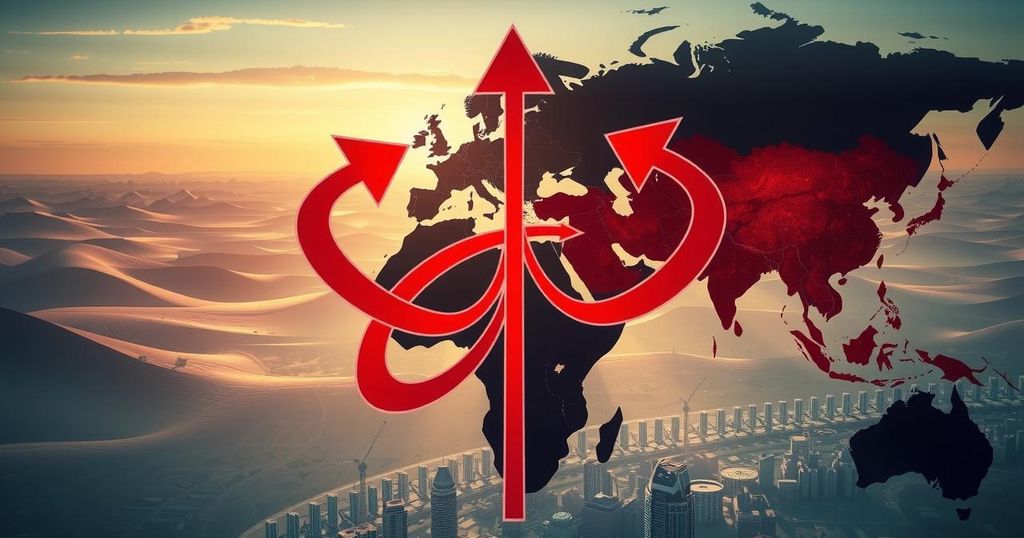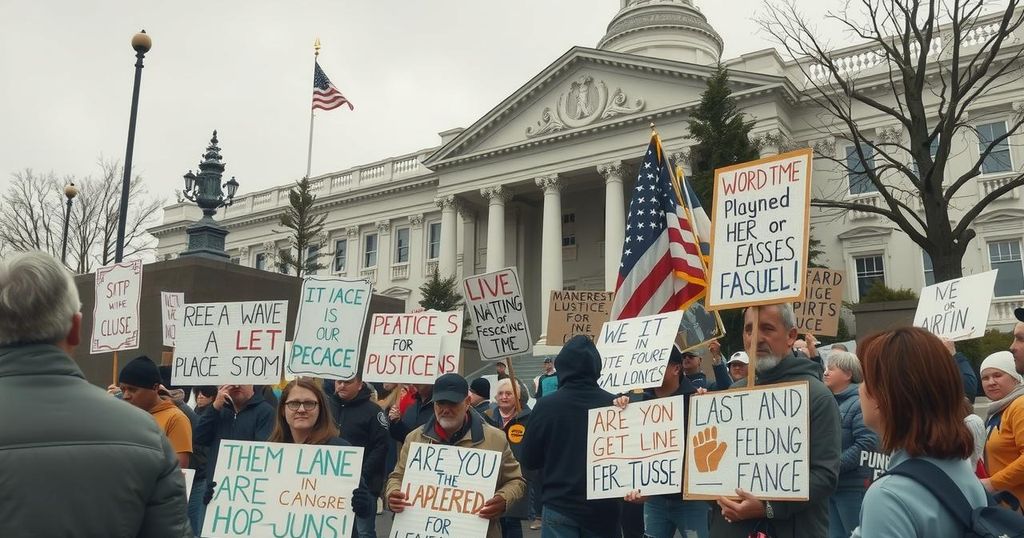A concealed rivalry has emerged between Egypt and the UAE in the context of Sudan’s civil war, with Egypt backing the SAF and the UAE supporting the RSF. Both nations have contrasting motivations: Egypt seeks regional stability, while the UAE focuses on resource extraction. Diplomatic mediation is vital to avert further crisis in Sudan, as external involvement continues to aggravate the conflict.
In the backdrop of Sudan’s dire civil war, a significant power struggle unfolds between Egypt and the United Arab Emirates (UAE). Egypt aligns itself with the Sudanese Armed Forces (SAF), while the UAE supports the Rapid Support Forces (RSF), a conflict that ignited on April 15, 2023, leading to a humanitarian crisis and potential state collapse.
The Biden administration recently imposed sanctions on both RSF leader Hemedti and SAF’s General Abdel Fattah al-Burhan for complicity in genocide and obstructing peace. Despite evidence of the UAE’s involvement in the conflict, Abu Dhabi maintains a facade of neutrality, a stance publicly challenged by U.S. officials.
Egyptian officials, notably Foreign Minister Badr Abdelatty, have emphasized the need to support the SAF, distancing it from other factions such as the RSF. Egypt’s support reflects a commitment to stability along its borders, especially considering the return of Sudanese refugees as parts of the SAF regain control.
With over 1.2 million Sudanese refugees currently in Egypt, a complete collapse of Sudan poses an existential threat for Egypt. Additionally, the ongoing turmoil in Sudan jeopardizes Egypt’s Nile water security and has weakened its position against Ethiopia, a rival in the Nile Basin disputes.
In this context, Sudan’s government has expressed solidarity with Egypt against the Grand Ethiopian Renaissance Dam (GERD), highlighting an alliance strained by the civil conflict. The power vacuum created by Sudan’s unrest has empowered upstream nations, notably Ethiopia, to push forward their own water interests.
Emerging agreements, like the Cooperative Framework Agreement (CFA), threaten Egypt’s historic benefits from Nile water resources. Consequently, Egypt pivots to build regional security partnerships with Eritrea and Somalia, aiming to counter Ethiopia’s influence while supporting Sudan’s armed forces.
For the UAE, the failure of the RSF to establish control in Sudan complicates its strategic objectives, particularly related to accessing Sudan’s resources and seizing opportunities within the gold trade. Prior plans for the Abu Amama port were derailed amid the chaos, presenting significant loses to UAE’s economic interests.
Egypt and the UAE’s divergent visions for Sudan complicate the regional dynamics: Egypt supports the SAF as vital for Sudan’s stability; the UAE views the RSF through a lens of economic exploitation. The Sudanese army’s government seeks a cessation of UAE support for the RSF, implying a need for negotiations that would radically shift the ongoing conflict.
Such negotiations would undoubtedly challenge the UAE’s image as a humanitarian benefactor, required to recognize its involvement in the humanitarian crisis caused by the RSF. Egypt may serve as a crucial mediator, facilitating dialogue between the warring parties as ongoing turmoil requires collaborative efforts to halt further descent into civil war.
Future stabilization of Sudan hinges on reaching consensus among Egypt and the UAE, with the United States playing a potential role in diplomatic mediation. Without progress, continued external support for opposing factions threatens to prolong Sudan’s devastating conflict and humanitarian disaster.
The power struggle between Egypt and the UAE over Sudan occurs amid a devastating civil war, resulting in a pressing humanitarian crisis. The conflict, which began in April 2023, involves direct support to opposing military factions, exacerbating the situation. Both nations have strategic interests in Sudan, influencing regional stability and security, particularly concerning Nile water resources and ongoing geopolitical issues with Ethiopia. The battle for influence manifests through military support, economic interests, and ultimately, humanitarian consequences.
The ongoing conflict in Sudan starkly showcases the contrasting objectives of Egypt and the UAE. As Egypt seeks stability and control for its southern border, the UAE aims at resource extraction and strategic advantage. The complexities of their rivalry can result in further destabilization unless a diplomatic resolution is achieved through mediated dialogue. The path forward requires collaboration, awareness of mutual interests, and a shared commitment to peace in Sudan.
Original Source: responsiblestatecraft.org




